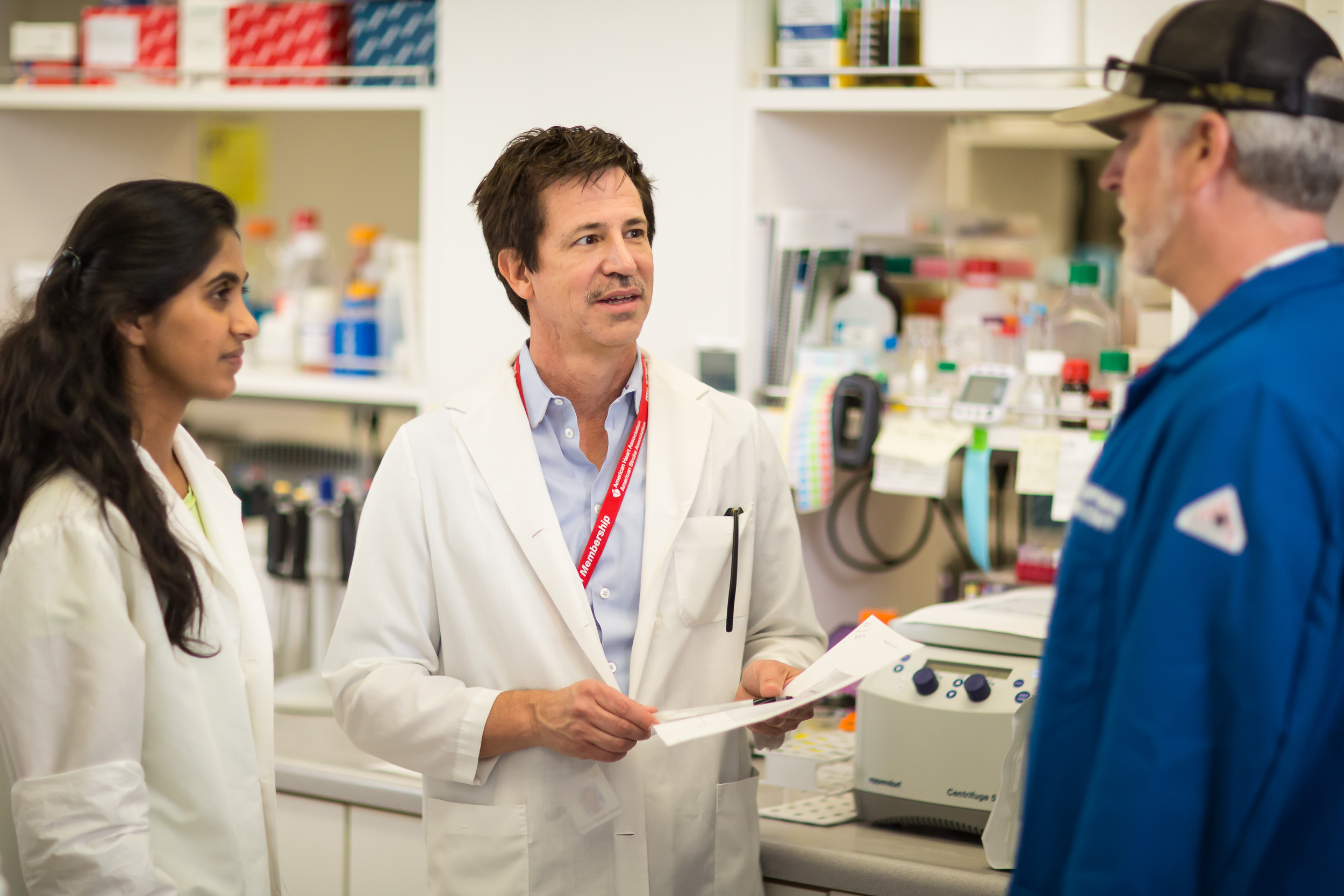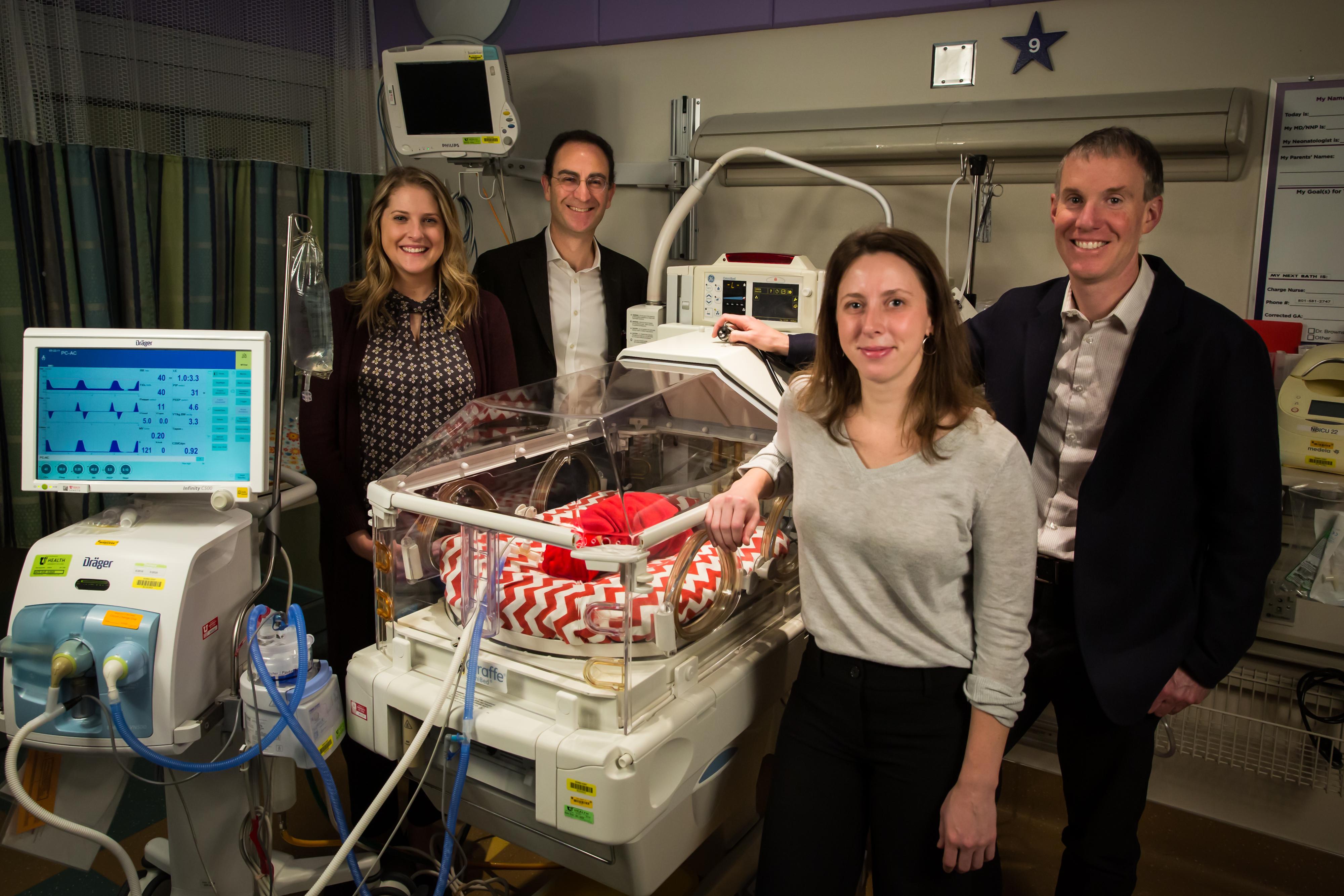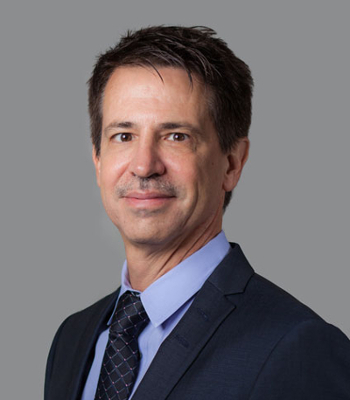
Genomic Medicine and the Future of Health Care
In an age marked by a pandemic, climate change and chronic disease, human health faces a complex web of challenges that demands wide-ranging solutions. It will take an arsenal of strategies to prevent disease and build a healthier future for everyone. One of those strategies, personalized medicine, has experienced swift growth in recent decades, emerging as a cornerstone of excellence at the University of Utah.
Personalized medicine, also called genomic medicine, uses information encoded within each person’s genome—our complete set of DNA instructions—to tailor their health care. A DNA-based approach to health can reveal a hidden cause of disease, predict the risk of developing disease years before it would happen and, in some cases, suggest whether a particular drug might work before it is prescribed.
[A new book by U philosophy professor James Tabery critiques what he calls the hype surrounding personalized medicine. A discussion with Tabery can be found here.]

Martin Tristani-Firouzi is a clinician-scientist at University of Utah Health who became captivated by the promise of personalized medicine when genes that control the rhythmic beating of our heart were first discovered here in Utah. Now, he researches inherited rhythmic disturbances and sudden cardiac death and treats patients in his clinic who have, or are at risk for, these conditions.
U of U Health spoke with Tristani-Firouzi, who co-directs the Center for Genomic Medicine, to learn about the U’s role in growing the field of personalized medicine and his outlook for the future.
Can you summarize the University of Utah's legacy in genetics research?
The U has been at the forefront of genetics research for decades. In large part, this is due to the strength of our research program and the unique resources built here, including the Utah Population Database, the world’s largest genealogical database linked to medical records. Leveraging these resources, our researchers have been able to discover more than 50 genes that increase the risk for genetic diseases including breast and colon cancer, cystic fibrosis and cardiac arrhythmias.
Some of the early genetics work by U researchers has become bedrock for the field. In the 1980s, scientists in the Department of Human Genetics were instrumental in designing some of the first technologies for sequencing the human genome. They worked with Utah families to carry out studies that laid a foundation for understanding genetic variation, or how the same gene differs from one person to another. These contributions have had a major impact on the lives of people across the world. Among many other accomplishments, this work has made possible early detection of breast and colon cancers and early interventions for these diseases. These personalized medicine-based approaches are now the standard of care for medical practice.
What are U scientists doing in the field of personalized medicine today?
Today, our scientists are advancing the field in ways we never could have thought possible 50 years ago. The U has been at the forefront of technological innovations that allow us to interpret our genetic blueprint, the whole genome sequence, which is built from 3 billion DNA letters and is full of complexity. This allows scientists to better understand and interpret our DNA instructions and identify causes of genetic disease. It is an exciting line of research.
We are applying this knowledge in different ways. Cancer researchers are directly sequencing the DNA of tumors to improve diagnosis and treatment of those cancers. Another specialized field, pharmacogenomics, uses genetics to identify the right medication for the right person at the right time. Pharmacogenomics is also looking to fine-tune the right dose of medication for a whole host of disorders.
One of the most exciting recent advances is the integration of personalized medicine practices into clinical care. Our U of U Health clinicians and scientists run the Utah NeoSeq and Penelope programs. We are rapidly sequencing the DNA of critically ill children and newborns in the intensive care unit and diagnosing disease in chronically ill children for whom the cause of their condition has been a mystery for years. This allows clinicians to understand why some children are not thriving and adapt their care accordingly. Intervening early increases their chance for a better life and saves on long-term health care costs. Rapid genome sequencing is now the standard of care for critically ill children at the University of Utah Hospital, Primary Children’s Hospital and hospitals across the U.S.
Gene therapy has been attracting attention lately. What is the U of U Health's involvement?
Gene therapy is a clinical application that has been nothing short of transformational. As recently as six years ago, children born with an inherited condition called type 1 spinal muscular atrophy (SMA) were highly likely to die at a young age. Over time their muscles weakened, eventually making it difficult to swallow and breathe. Now, children with SMA who received some of the first gene therapy treatments as infants are active five and 6-year-olds who are running, skiing and going to school. Because of our medical and scientific expertise, U of U Health and Primary Children’s Hospital are among a handful of health systems providing these treatments to children in the U.S. We are also carrying out a number of gene therapy clinical trials for children and adults.
Despite other victories in gene therapy for a limited number of rare diseases, not all have been as successful as for some of the children with SMA, and the treatments cost millions of dollars. History has taught us that as new technologies advance and become more scalable, they become more accessible and costs go down. The hope is that gene therapy will follow that path and could one day be used to treat other genetic and non-genetic health conditions.

You talked about how common diseases can be influenced by genetics. Can you explain that?
Not all diseases are genetic and, in fact, some of the biggest killers of Americans—like heart disease, diabetes and some cancers—are driven by environment and lifestyle. But even these diseases are influenced by our DNA. Our genes affect how susceptible we are to environmental triggers that can make us sick. A measurement called a polygenic risk score estimates how the versions of the genes you carry influence your risk of developing certain diseases. Having an estimate of your likelihood of disease can help you take steps to detect it early and possibly prevent it.
Here at the U, we are developing artificial intelligence-based technologies to combine genetic information with medical records in order to predict clinical outcomes. For example, those data can help determine whether someone is likely to have serious medical complications after surgery. We are now learning how to use that type of information to guide a patient’s medical care. We’re also getting a better understanding of how social determinants of health like poverty, education and food security influence health outcomes.
I imagine that a lot of people reading this have never received personalized medicine as a part of their own health care. Can you explain why?
At this stage, precision diagnostics and therapies are integrated into certain types of specialty care, such as for some cancers and for critically ill children, but are not yet commonly used in general medical care. One barrier is cost, but the good news is that the price of DNA sequencing has dropped precipitously over the last few decades. Today, a lab-certified sequence of a whole genome costs $1,000, which is lower than the price of many routine medical tests. That opens up possibilities for widespread use.
However, clinics typically lack the technology and infrastructure to make information about our genes available and useful to clinicians. Scientists at the U are developing some of these technologies now. Making these advances accessible to clinics and patients, and educating the next generation of clinicians in these practices, will take time, cost and effort.
A significant challenge is that most of the information we have about genes comes from people of European descent. DNA-based tests or precision therapies that have been developed based on that information are of limited use for people who do not share that same ancestry, since there are different versions of genes in the human population. It is crucial that we engage diverse communities in research studies so that we can make precision medicine more equitable.

What is your outlook for the future?
As co-director of the U’s Center for Genomic Medicine, I have seen first-hand how precision medicine is transforming health care. I have routinely cared for children with life-threatening heart defects and complex medical problems who have been rapidly diagnosed with a genetic condition that allows us to tailor the right care to these children at the right time. Precision medicine technologies have had an enormous impact on the care of children and adults with complex medical conditions. I see a future where these innovations are applied broadly, routinely and inclusively across other medical disciplines, so that all members of society benefit equally from these discoveries.
Yet genetics is not the answer to everything. Some people don’t get enough exercise, cannot access the health care they need or are experiencing the environmental consequences of climate change. These are a small sampling of the lifestyle, social and environmental factors that are having major impacts on our health. Talented researchers across the U are working on all of these facets of health. It will take all of us in the social, physical and health sciences, as well as the humanities and arts, to make the world a better and healthier place.